Abstract
The “pre-delinquent” behaviors of six boys at Achievement Place, a community based family style behavior modification center for delinquents, were modified using token (points) reinforcement procedures. In Exp. I, point losses contingent on each minute late were effective in producing promptness at the evening meal. During the reversal phase, threats (which were not backed up with point losses) to reinstate the point consequences initially improved promptness but the last two of five threats were ineffective. In Exp. II, point consequences effectively maintained the boys' room-cleaning behavior and, during a fading condition where the percentage of days when the contingency occurred was decreased, the point consequences remained effective for over six months, even when they were delivered on only 8% of the days. Experiment III showed that the boys saved considerable amounts of money when point consequences were available for deposits but saved little money when no points were available. Also, when points were given only for deposits that occurred on specific days the boys deposited their money almost exclusively on those days. In Exp. IV, point consequences contingent on the number of correct answers on a news quiz produced the greatest increase in the percentage of boys who watched the news and, to a lesser extent, increased the percentage of correct answers for the boys who watched the news. The results indicate that “pre-delinquent” behaviors are amenable to modification procedures and that a token reinforcement system provides a practical means of modifying these behaviors.
Full text
PDF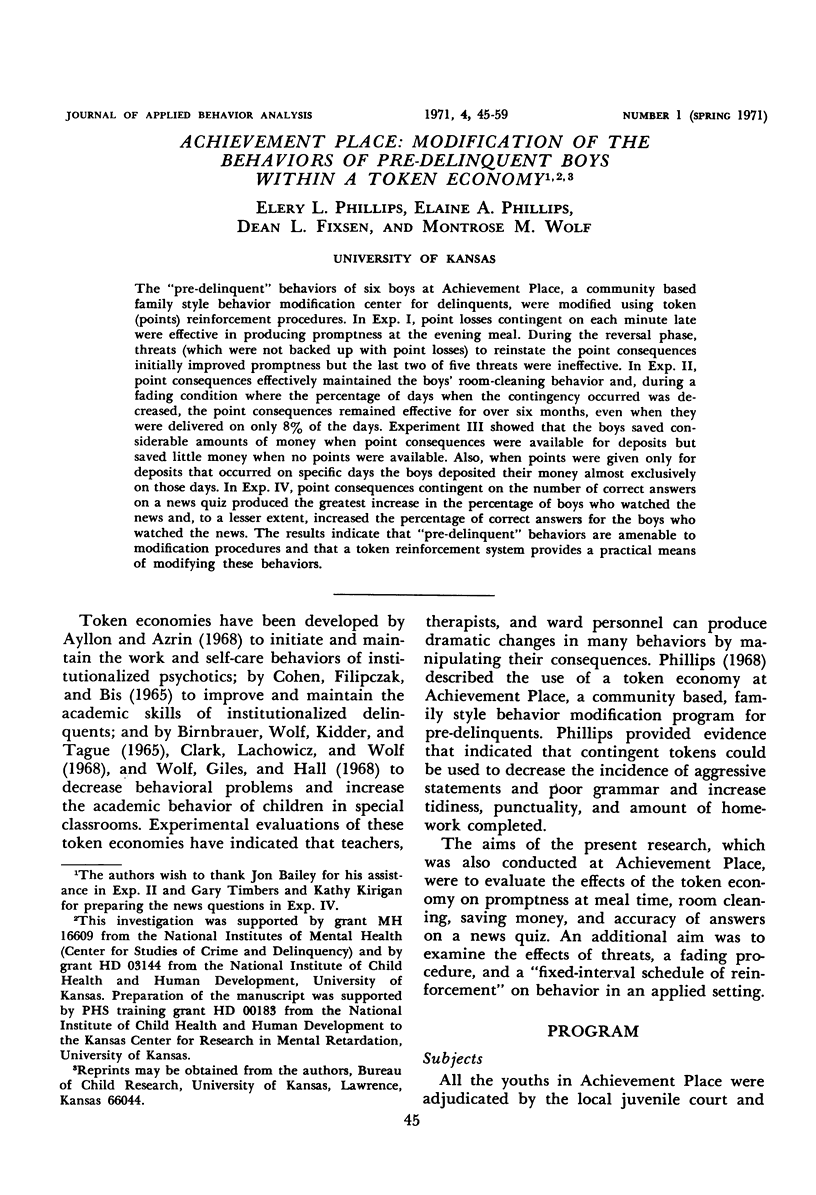
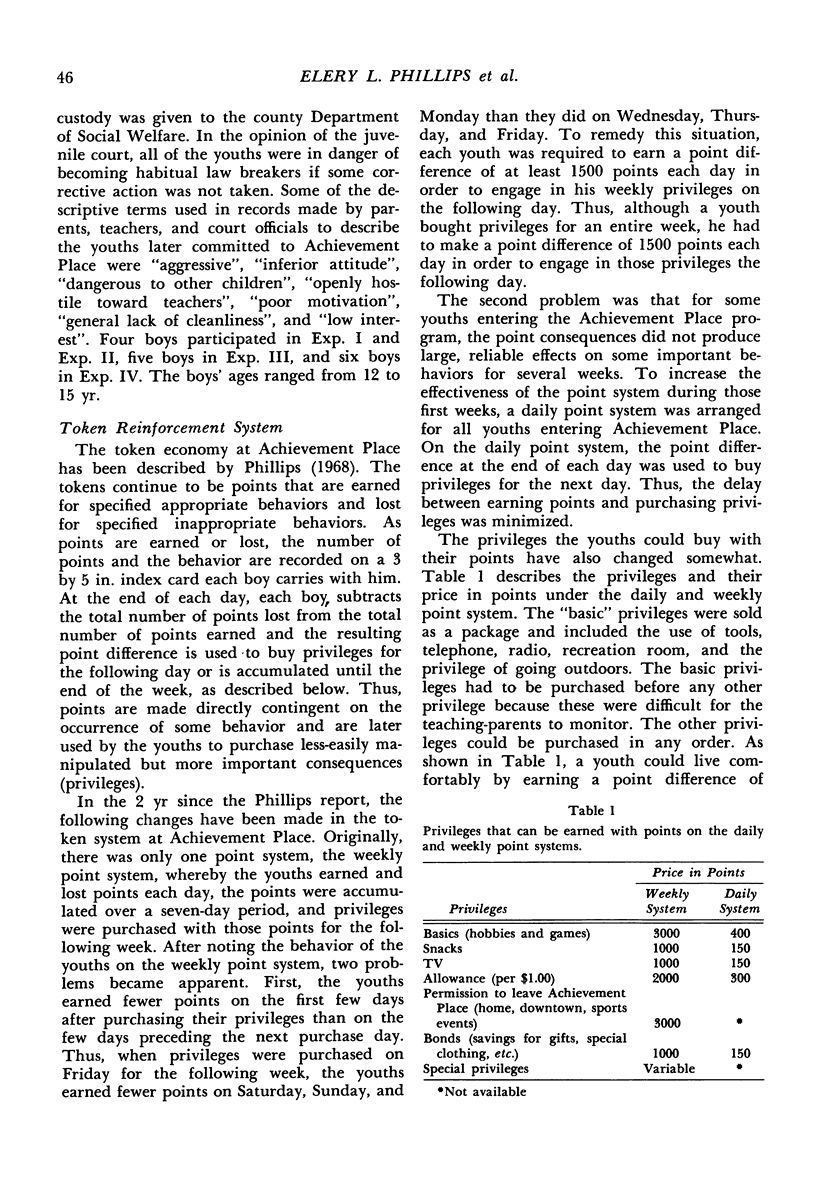
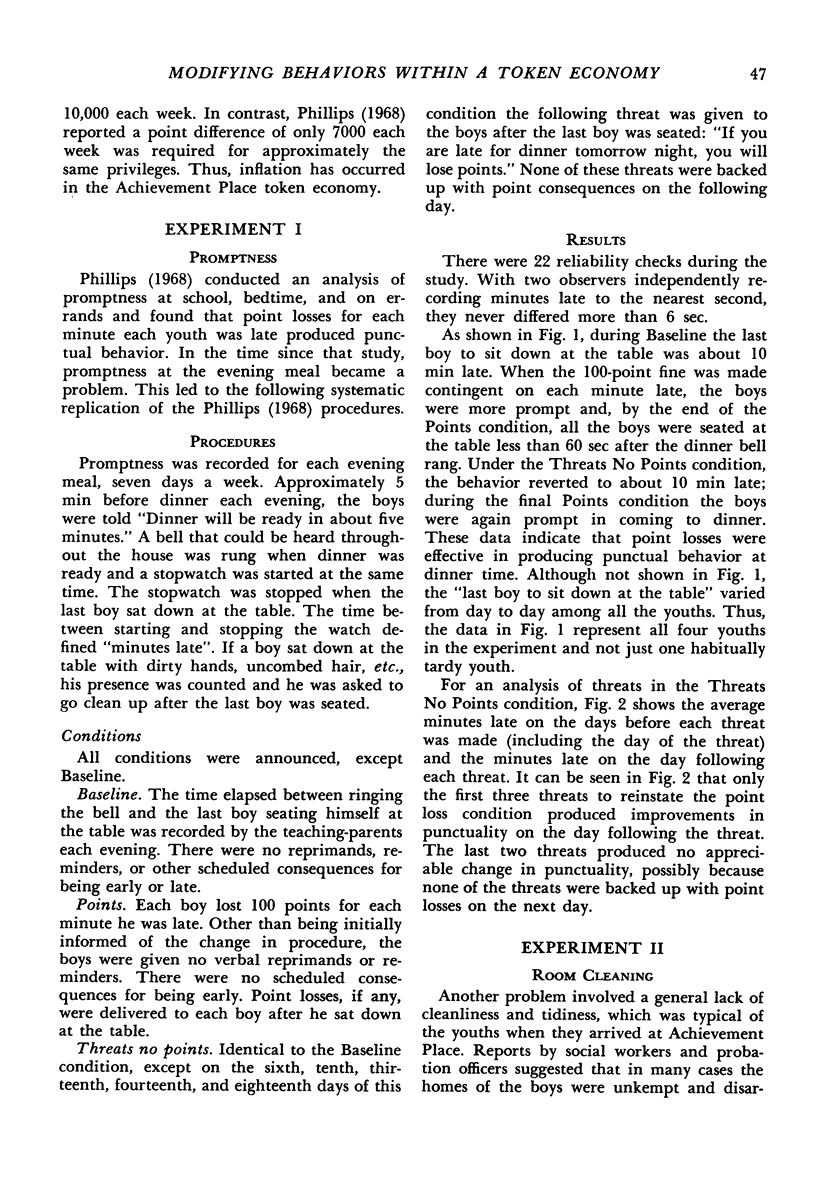
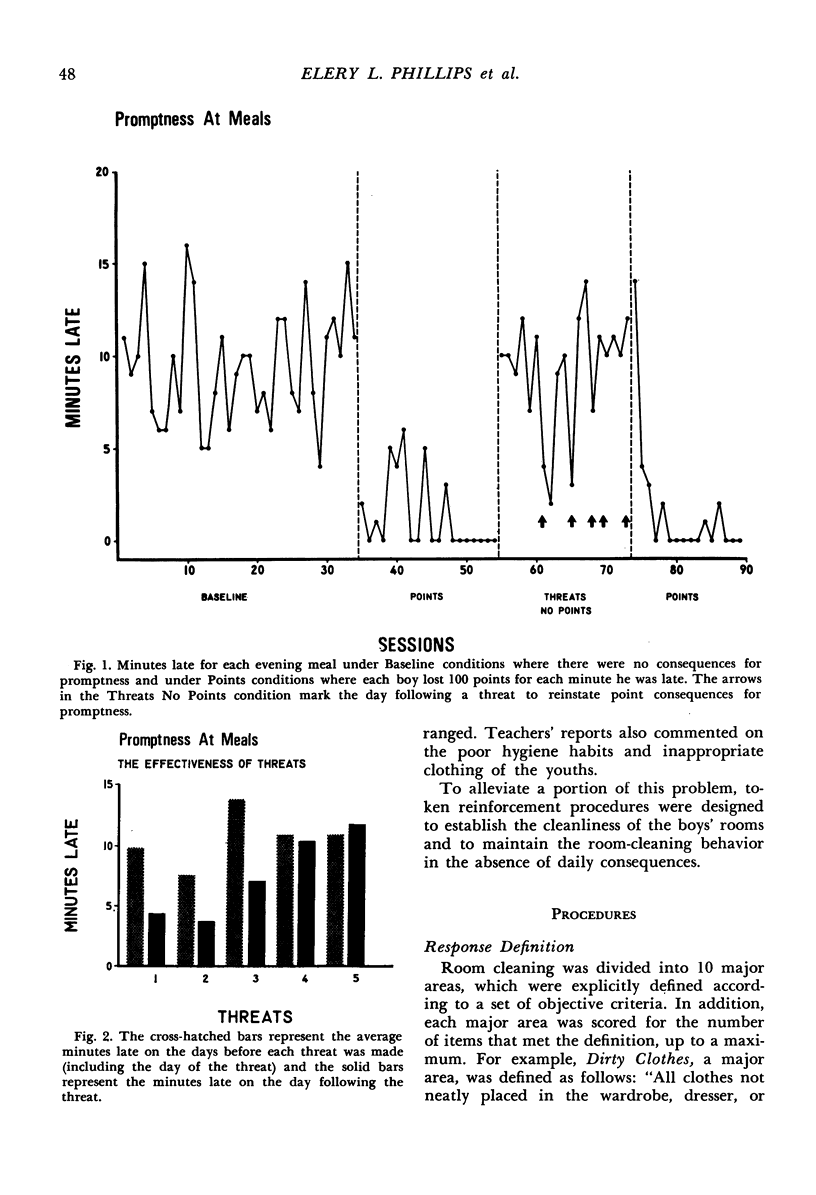
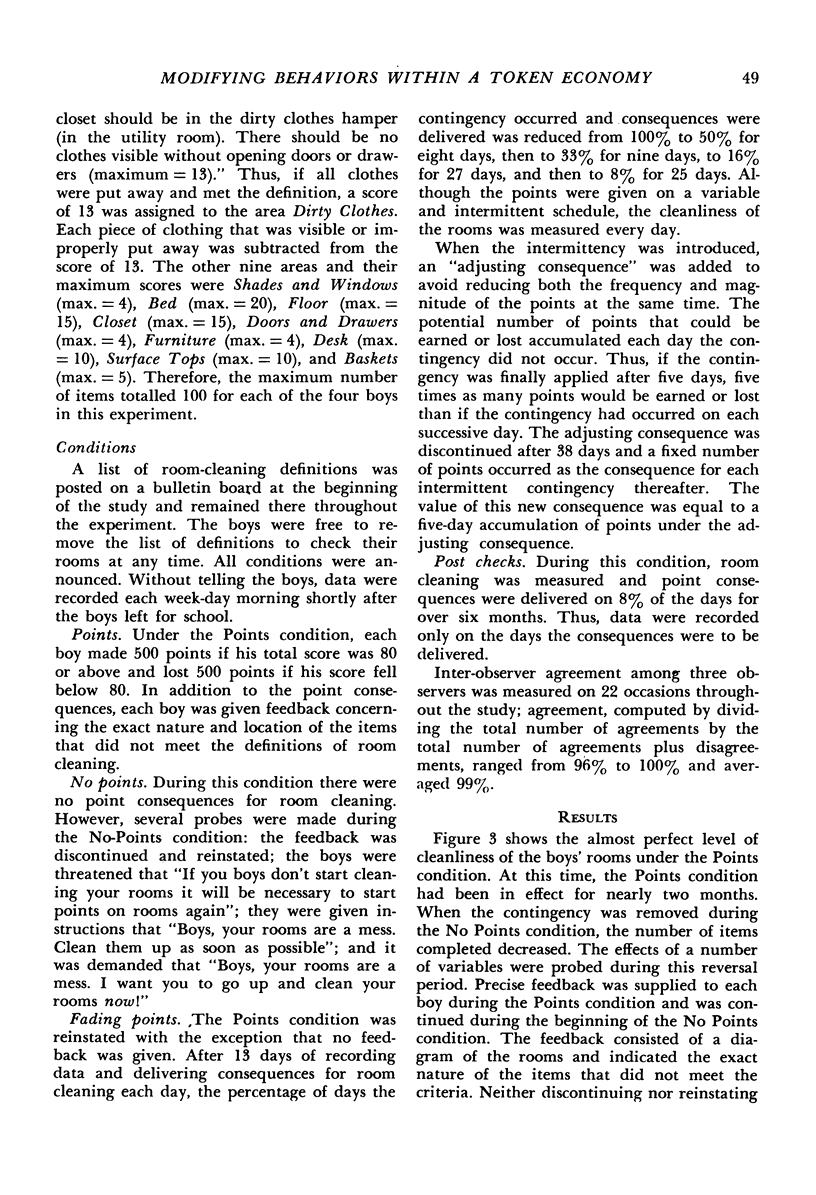
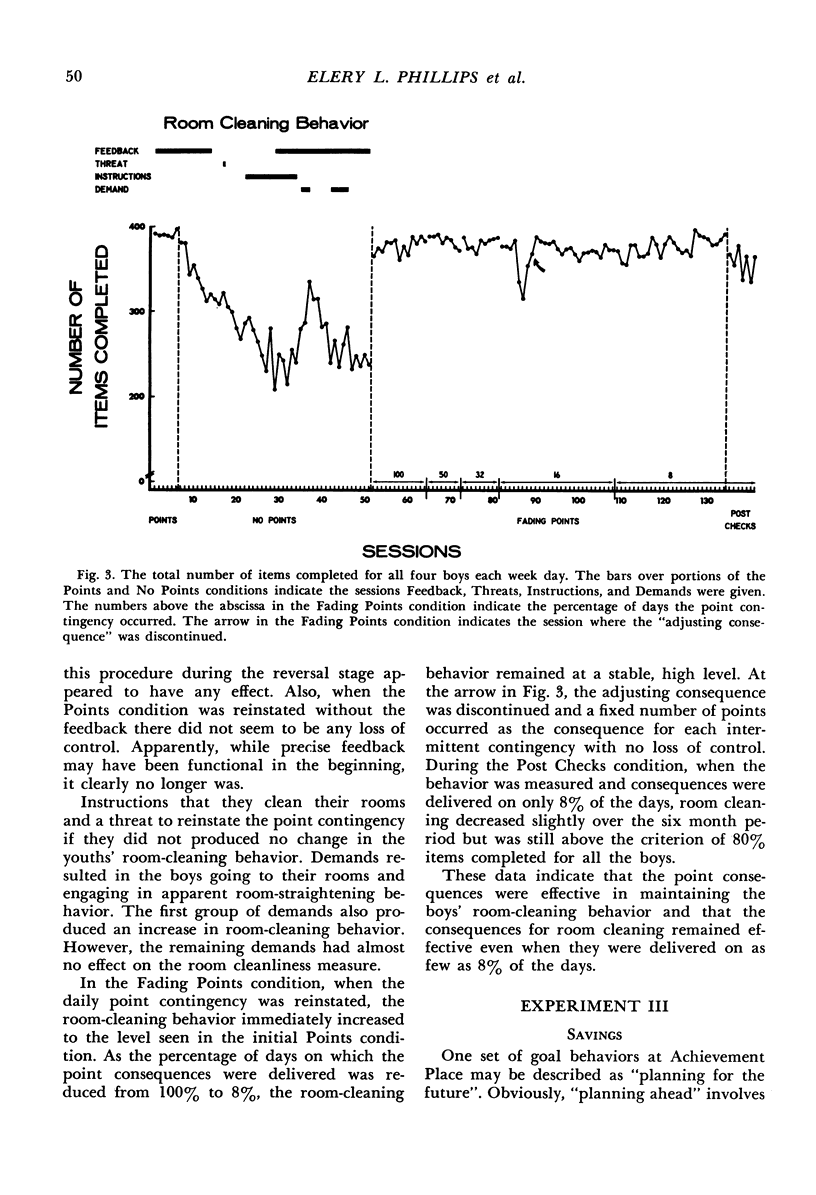
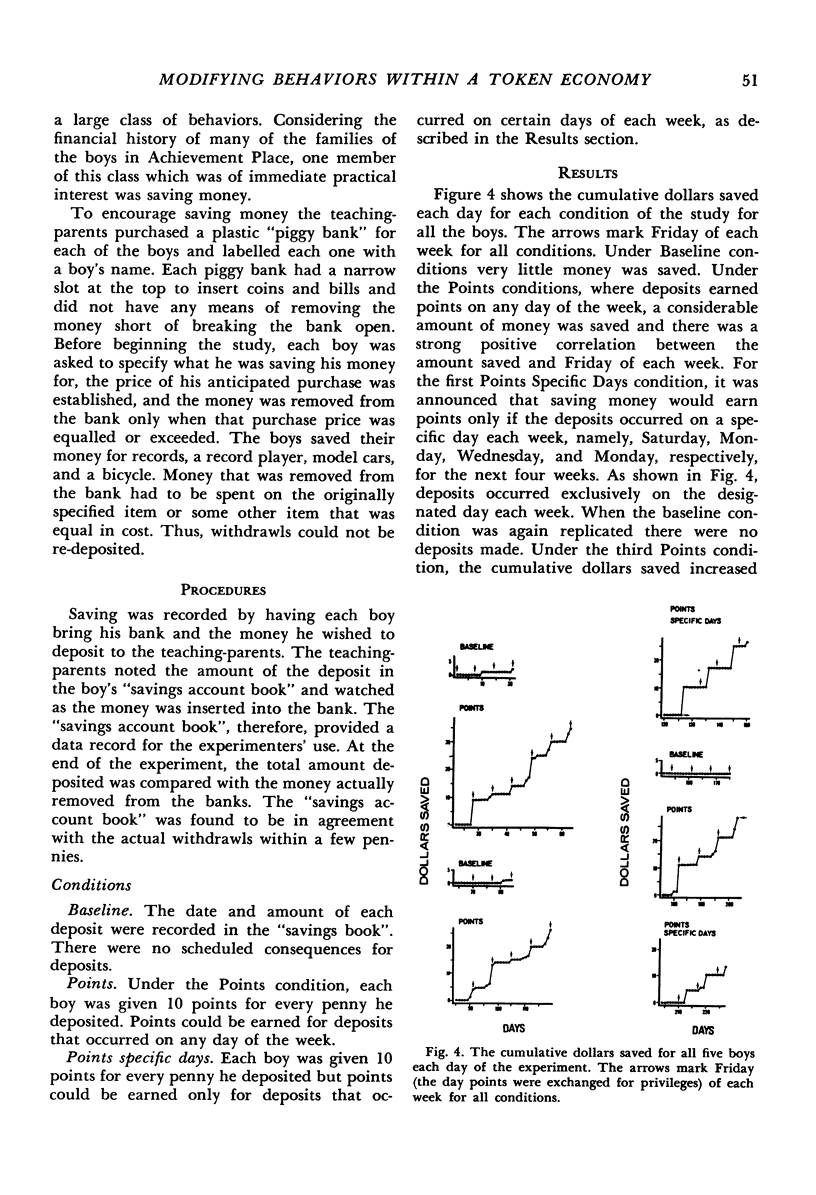
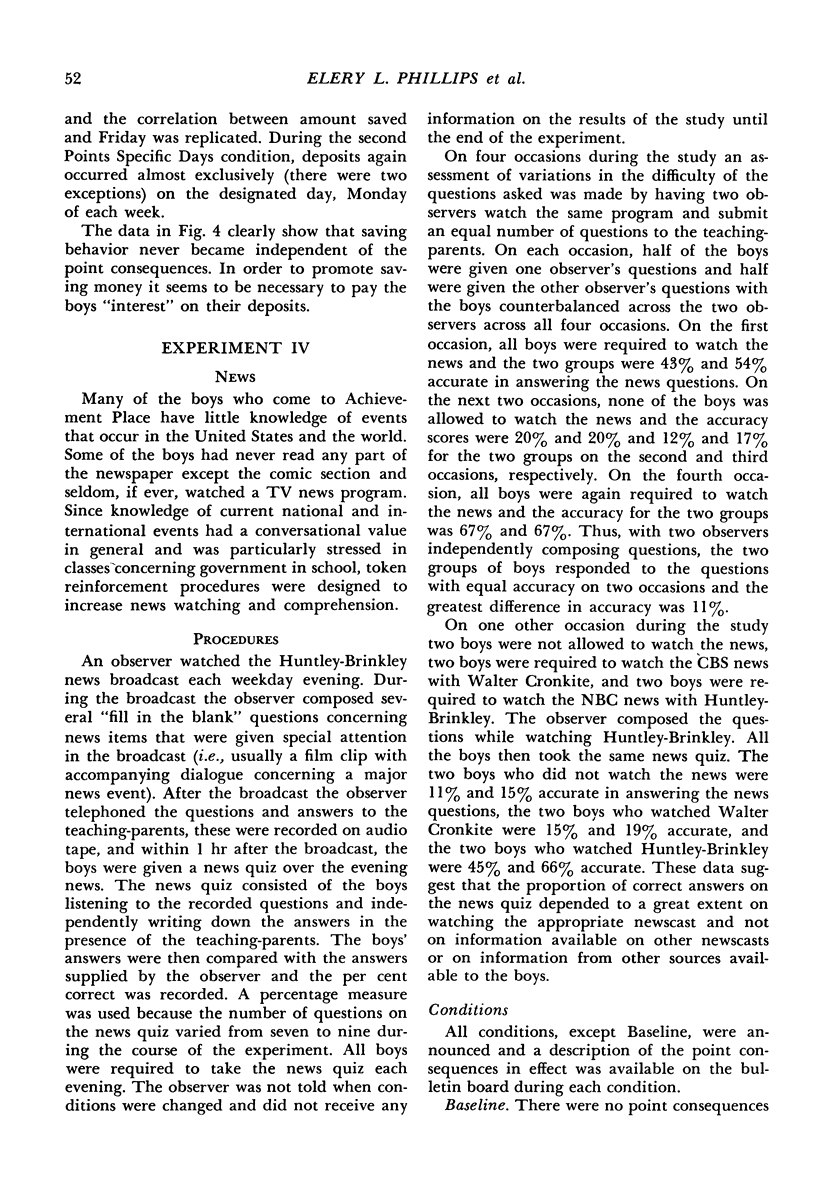
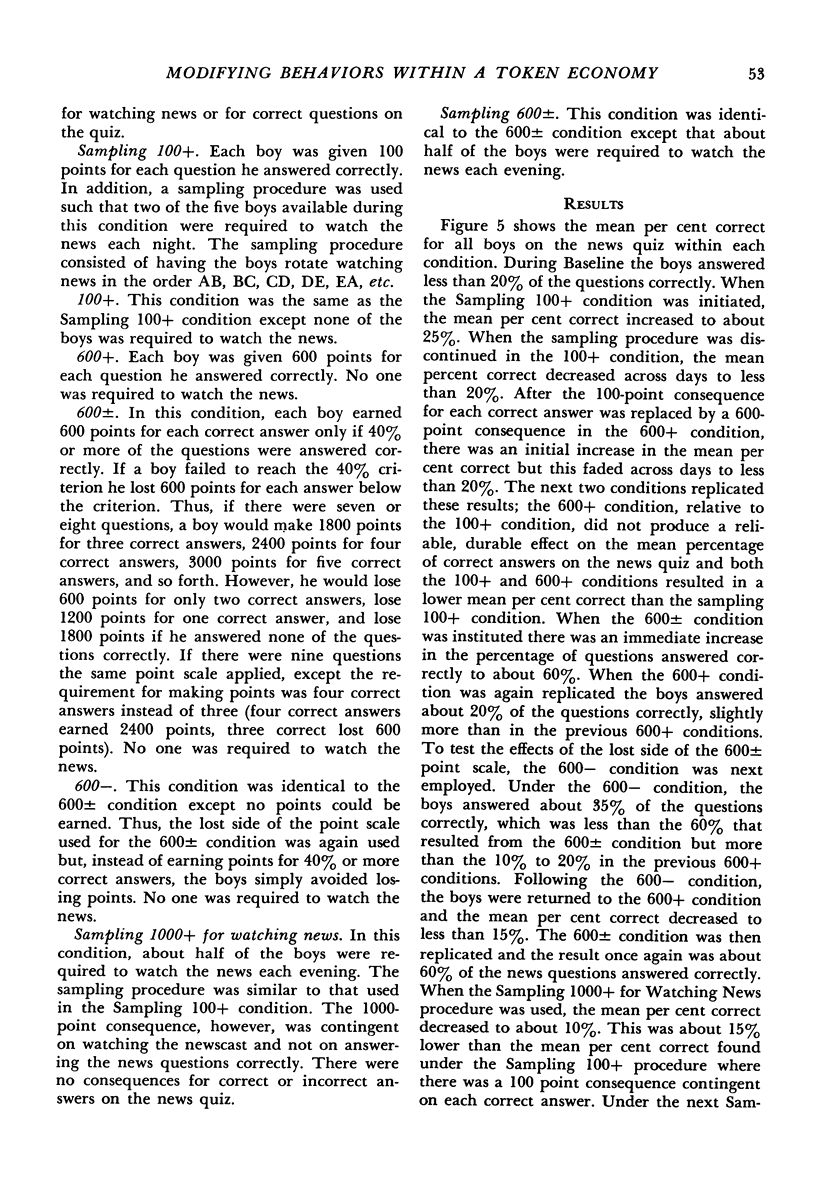
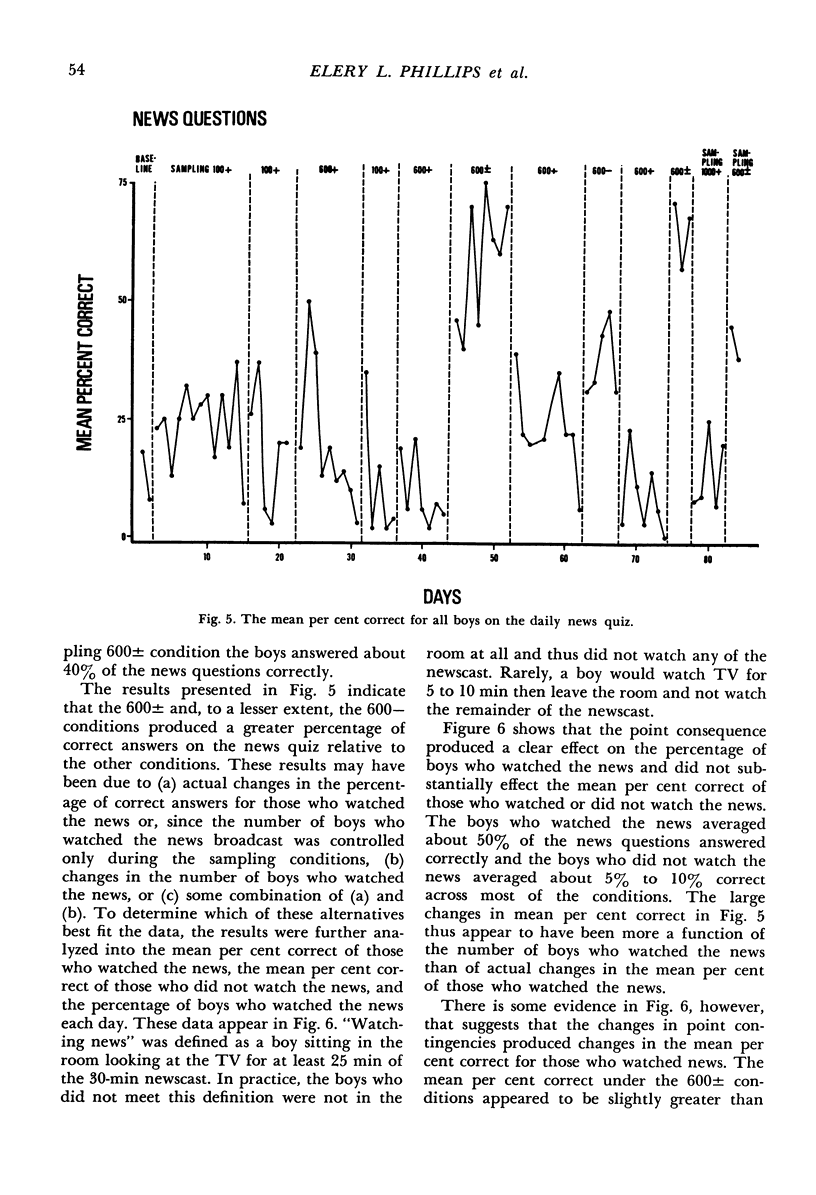
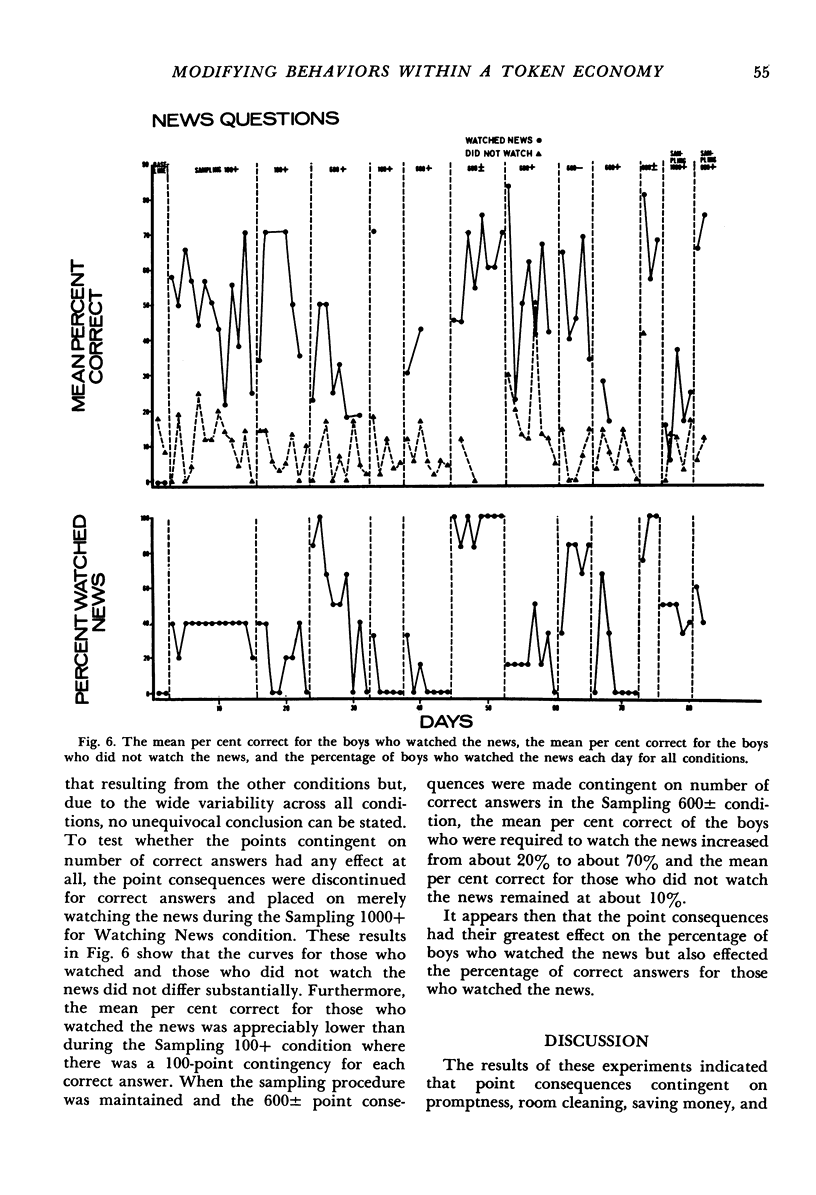
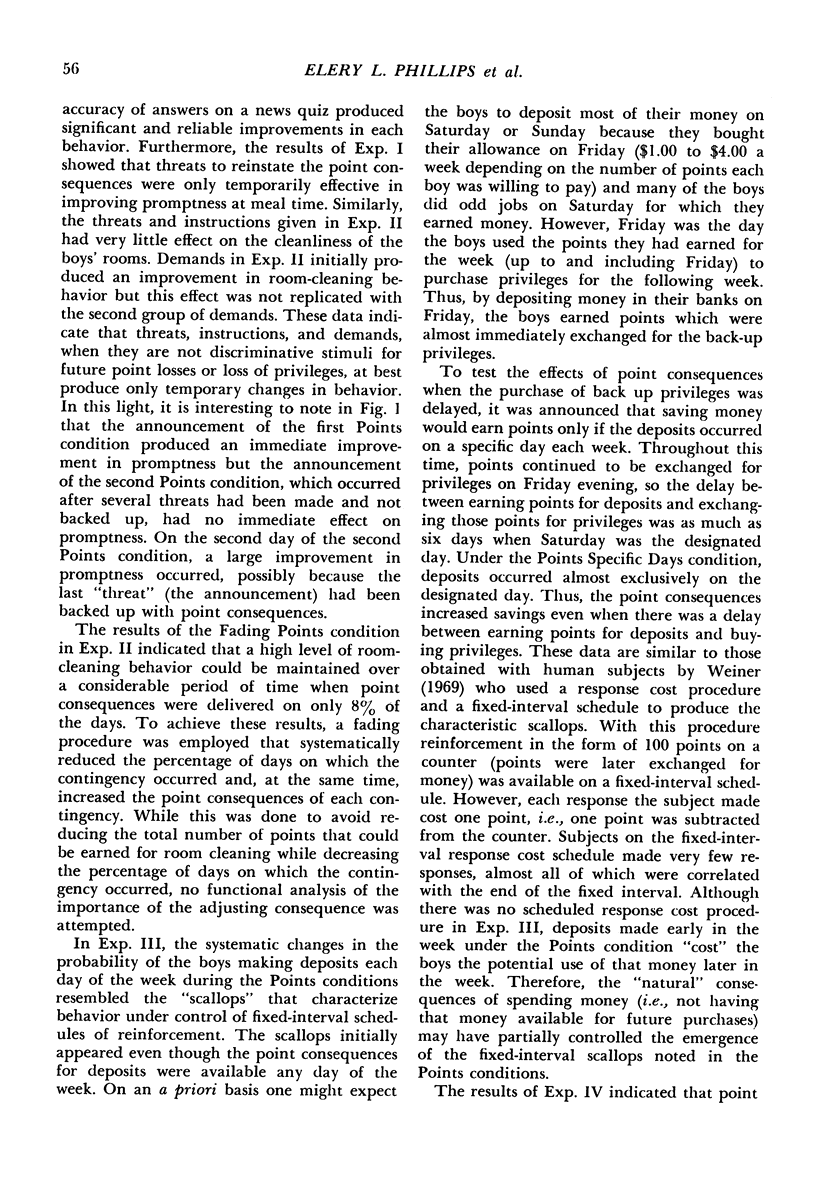
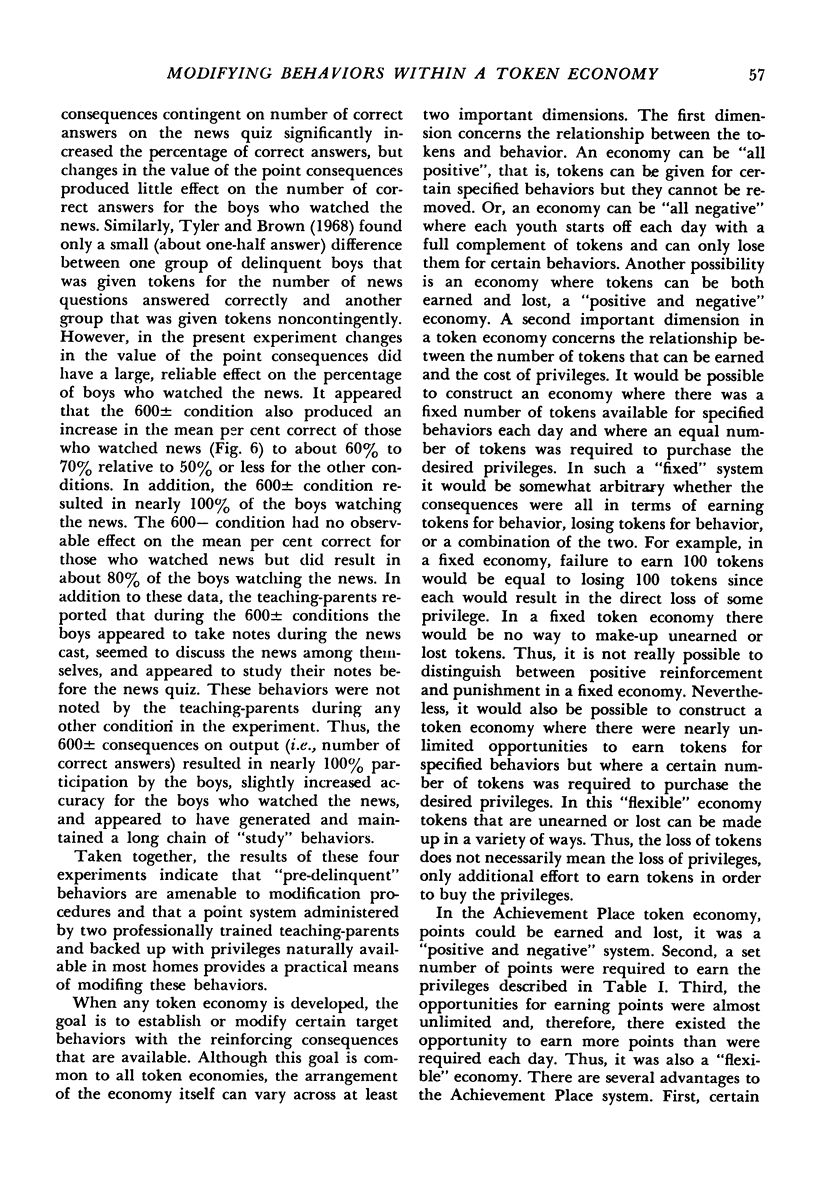
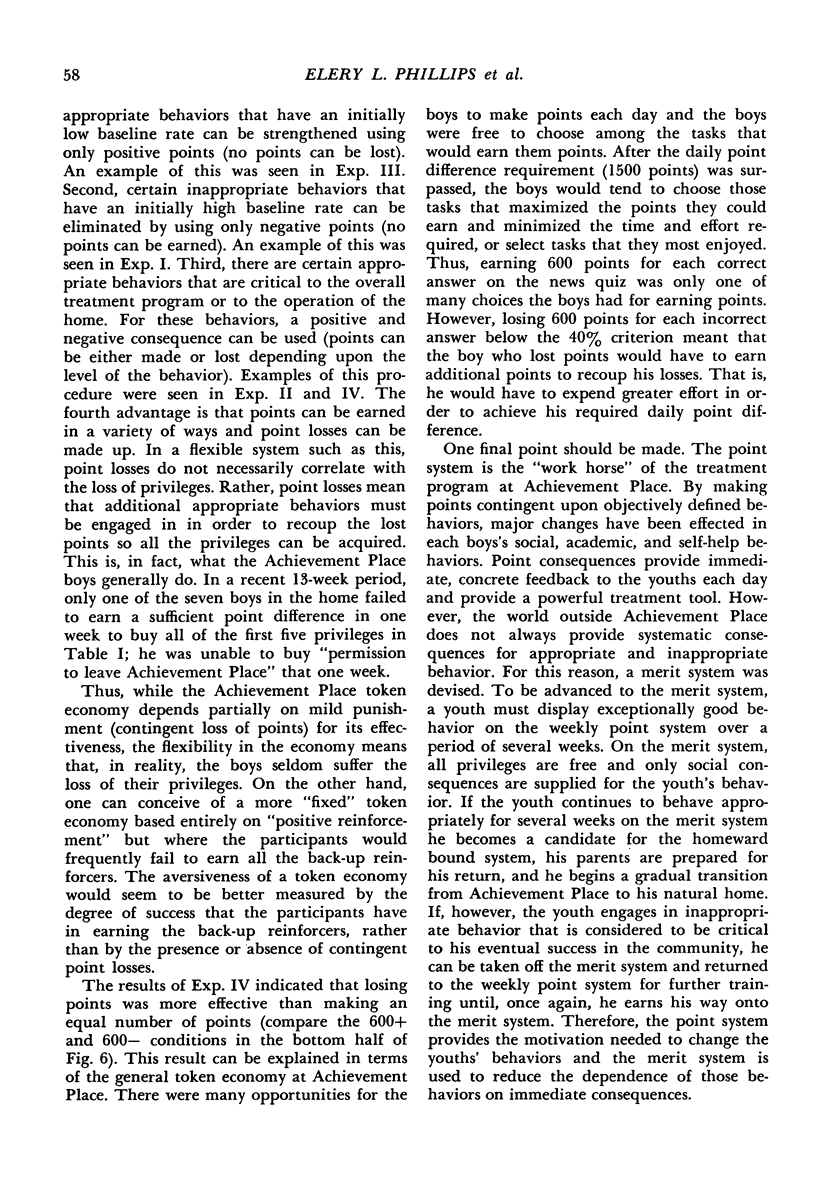
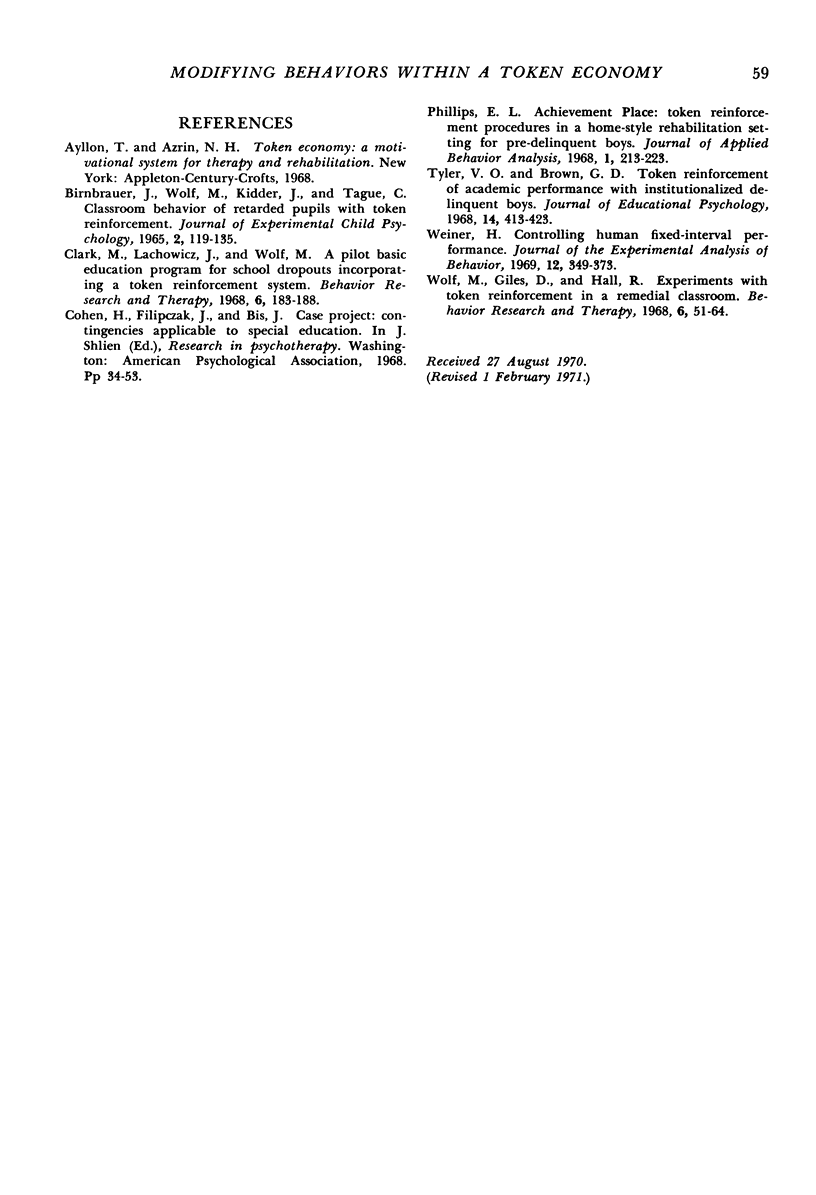
Selected References
These references are in PubMed. This may not be the complete list of references from this article.
- Clark M., Lachowicz J., Wolf M. A pilot basic education program for school dropouts incorporating a token reinforcement system. Behav Res Ther. 1968 May;6(2):183–188. doi: 10.1016/0005-7967(68)90005-3. [DOI] [PubMed] [Google Scholar]
- Phillips E. L. Achievement Place: token reinforcement procedures in a home-style rehabilitation setting for "pre-delinquent" boys. J Appl Behav Anal. 1968 Fall;1(3):213–223. doi: 10.1901/jaba.1968.1-213. [DOI] [PMC free article] [PubMed] [Google Scholar]
- Weiner H. Controlling human fixed-interval performance. J Exp Anal Behav. 1969 May;12(3):349–373. doi: 10.1901/jeab.1969.12-349. [DOI] [PMC free article] [PubMed] [Google Scholar]
- Wolf M. M., Giles D. K., Hall R. V. Experiments with token reinforcement in a remedial classroom. Behav Res Ther. 1968 Feb;6(1):51–64. doi: 10.1016/0005-7967(68)90042-9. [DOI] [PubMed] [Google Scholar]


